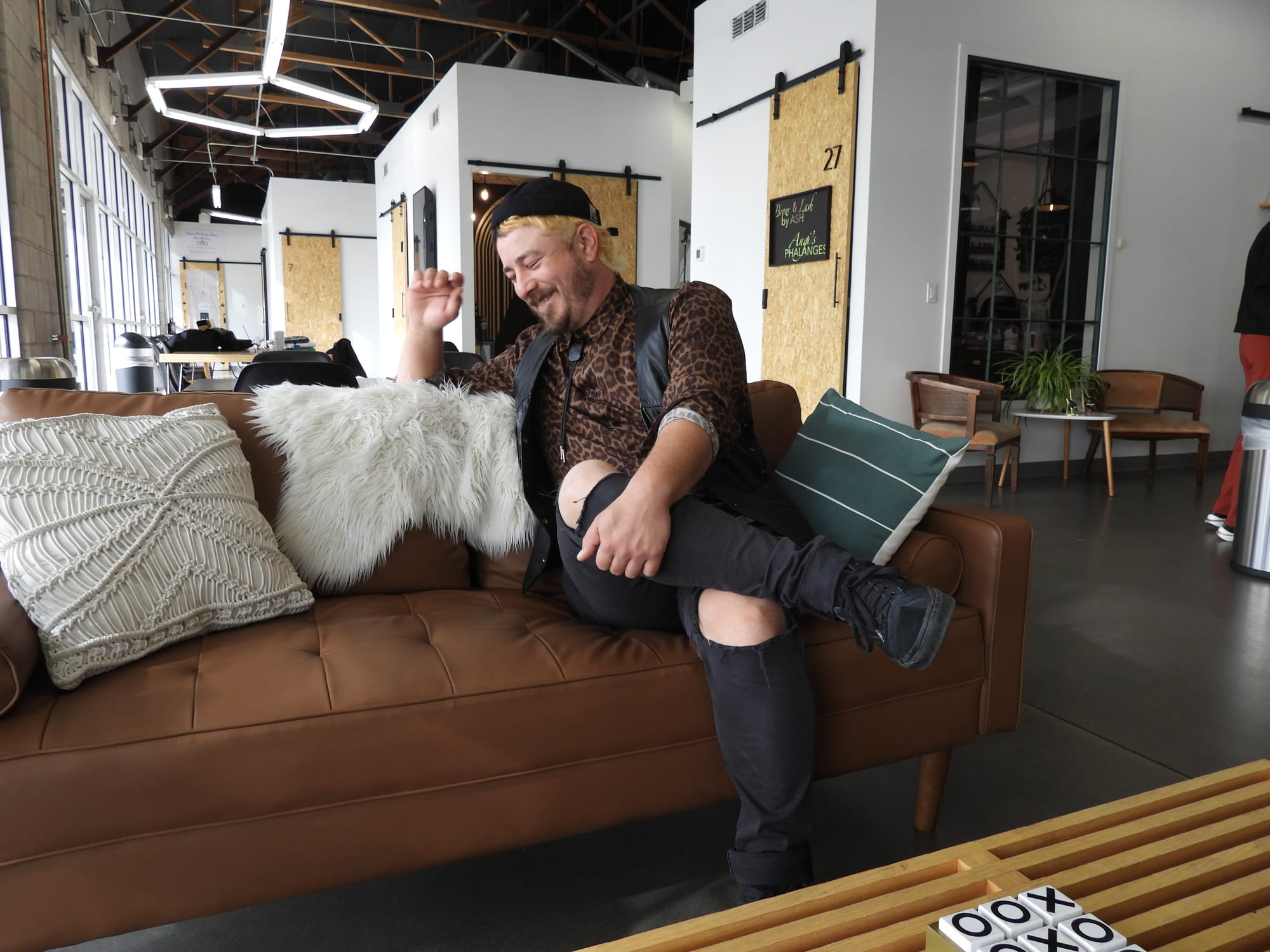Prominent Tucson Family Advocating for Trans and Migrant Rights Flees U.S.
Fearing mass deportations and anti-trans policies under a potential second Trump term, the Trujillo family says the U.S. is no longer safe for their son — or for themselves.
In response to safety concerns, queer-friendly barber shops have emerged to create spaces of inclusivity and respect.

As a licensed barber, Addison Mees considers an appointment for a haircut as an act of self care. The owner of HEADCRAFT studio in Chandler, Mees opened the space in November as a haven of inclusivity that encourages clients to “Come as you are. Leave with great hair.”
He designed the studio with that spirit by intention, offering a safe space for everyone, and primarily focused on the LGBTQ+ community. A space where gender and sexual identities—and hairstyles that express individuality—aren’t judged or assumed, but rather embraced.
He’s also attempting to create an inclusive and affirming space for those who may be neurodivergent, introverted, and those who navigate and manage a mental illness. The name of the studio itself is actually a nod to the intersection of hair, identity and mental health, Mees said.
More than anything, Mees' shop is a departure from tradition – of the run-of-the-mill businesses catering to cisgendered people or those not within the LGBTQ+ community. Businesses that can be social minefields for people who live a queer experience..
“There’s a lot of toxic masculinity in the barber world,” Mees said.
Clients have repeatedly told Mees about their efforts to alter who they are or how they appear in order to align with the atmosphere in a barber shop or salon. Some are afraid to ask for the style they truly want, or share the inspiration behind their choices, for fear of what the barber or stylist behind the chair might think.
To protect themselves, they change who they are.

“Butching yourself up, altering your voice, altering your mannerisms, altering a lot about yourself to be in the space and getting ready to be taken care of by someone who you don’t know where they stand on their identity? I felt that gap in so many other areas in my life, so I empathize with that,” Mees said.
Against what can often be a bigoted backdrop, salons and barbers from California to Georgia to Iowa and Arizona have declared their spaces as ones that are gender free and safe for anyone, including those in the queer and trans communities.
HEADCRAFT is among a handful of salons and barbers in the Phoenix area—alongside Electric Haven Barber, Mermaid Hair Salon and The Peacock Room, among others—that are registered as “queer safe” on HER, a map-based app. The studio also participates in Strands for Trans, a national network of trans-safe salons, barbers and wellness providers.
Because barber shops typically cater to male clients and salons predominantly serve females, environments that favor traditional gender roles and norms leave little space for individuals who don’t fall into those categories.
A widely cited survey, conducted by Pantene in 2019, found that 93% of non-binary individuals were misgendered at a salon. And, nearly a third of non-binary individuals feel stress ahead of a salon appointment.
Earlier this year, a Michigan hair salon owner came under fire for sharing a social media message that stated she would not serve anyone who doesn’t identify as either a man or a woman, suggesting that non-binary individuals should look for a local “pet groomer” instead.
Mees witnessed an interaction between a barber and a non-binary client, in which the stylist’s transphobia brought the client to tears.
“Talk about trauma. You’re coming in to make a statement about who you are and facing the fear of what the world will feel about that and in that vulnerable space you’re completely torn down,” Mees said, mentioning the person is now a client of his. “We’re always adjusting ourselves, particularly male-presenting people. It’s exhausting.”
Queer-safe establishments allow clients to leave those adjustments at the door. And Wesley Capps appreciates it.
“Barber shops tend to be this traditional space of hyper masculinity. I used to go to a barber who I liked very much and who is a very high quality professional and did an amazing cut, but he made plenty of assumptions about me,” Capps, a hospital chaplain, said.
The wedding ring he wore while married to his now ex-husband sparked an uncomfortable conversation for Capps when his barber once asked how his wife was doing. Capps managed a nervous laugh in response.
“I figured he would be fine with it,” Capps said of his barber’s potential reaction to him having a husband. “But, watching the other barbers in the shop joke around, making homophobic comments to each other…I never felt safe there.”
Capps has found solace in the space Mees provides, even though he describes himself as a “straight-passing, cisgender-type of dude.” Because, he said, hair is personal.
“Hair is so inherently part of human identity,” he said.
For Capps, he isn’t afraid to mix up his styles. He’s had a faux hawk and he’s grown it out past his shoulders. But during the COVID-19 pandemic, he needed to shave his beard to accommodate a protective mask while making rounds at the hospital. And when he did, he began to understand the deep connection between his hair and his identity.
“It literally put me into an existential crisis of identity,” he said. “I definitely rocked the ‘70s ‘stache for a few minutes, but it made me realize in a new way just how much my other friends, who have their hair as really a truly holistic part of their identity as it relates to gender and their expression of who they are…hair is important.”
LOOKOUT Publications (EIN: 92-3129757) is a federally recognized nonprofit news outlet.
All mailed inquiries can be sent to 221 E. Indianola Ave, Phoenix, AZ 85012.